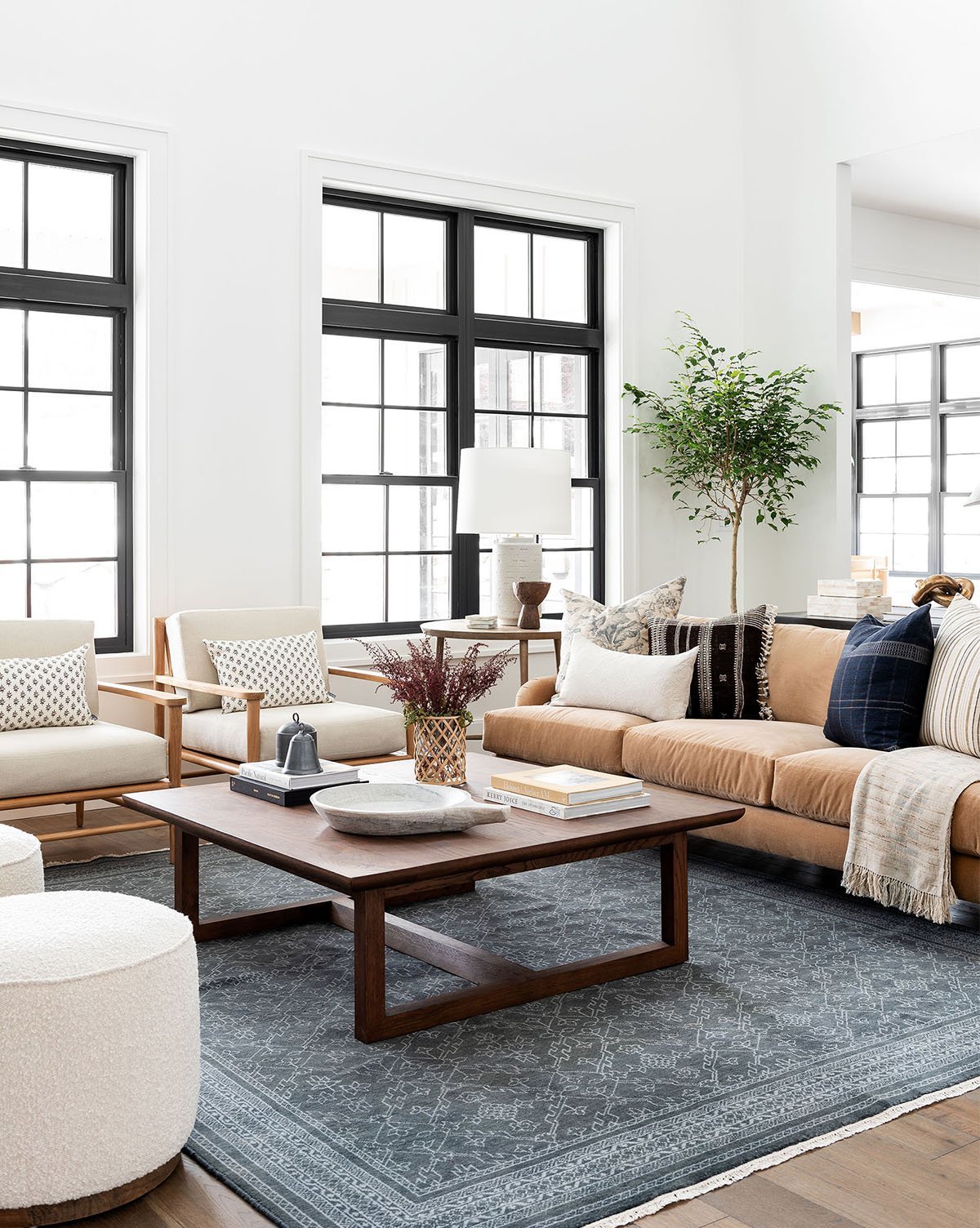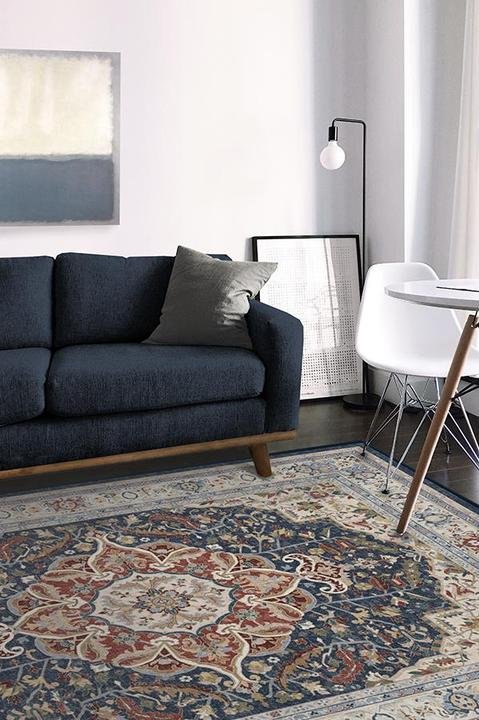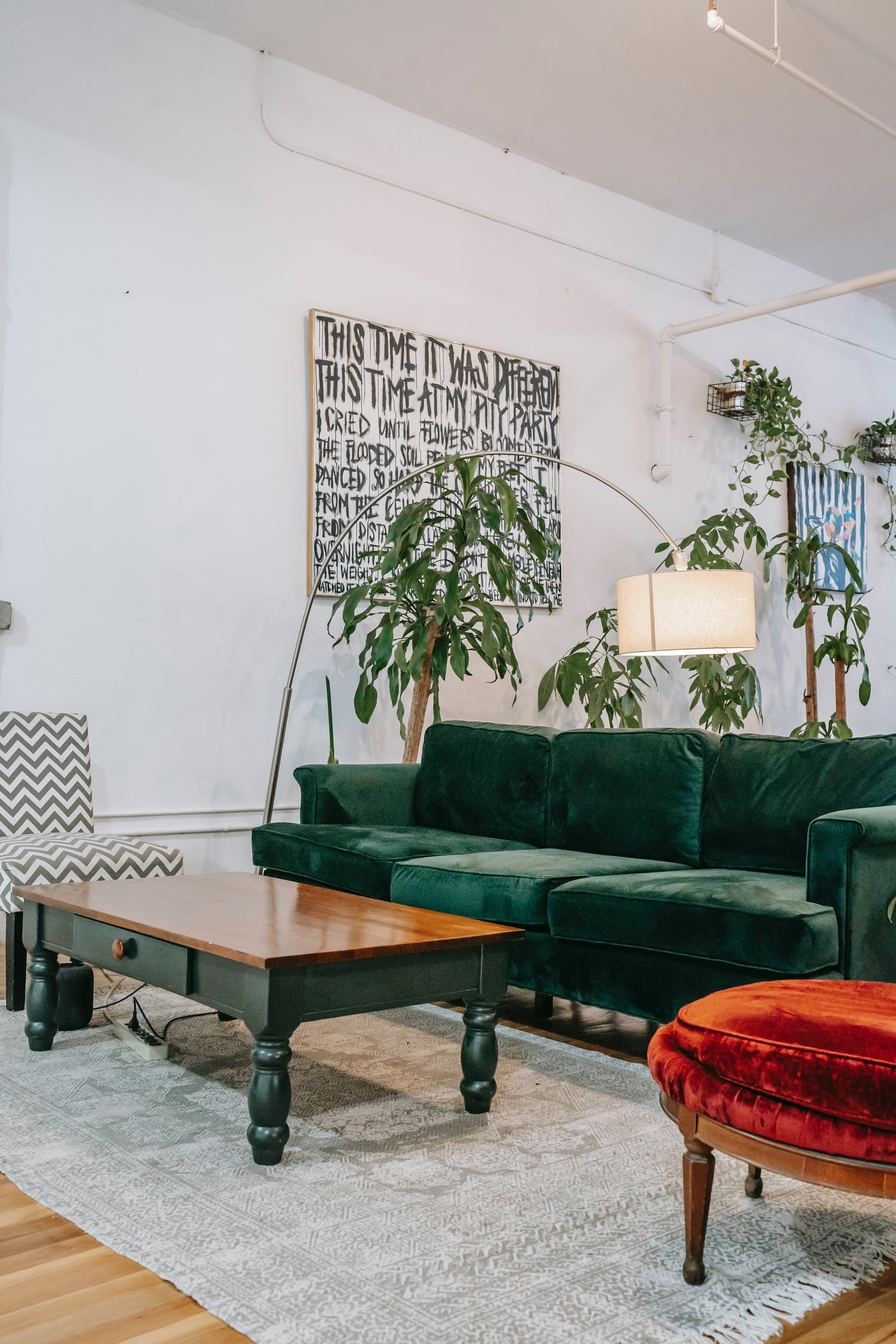How to choose the right rug
A rug is a great addition to a room: they can transform a design, anchor a space, and provide warmth and cosiness. They can have a big impact on how a room feels, but there’s a lot to consider when choosing one. Never fear, here’s a guide to follow when you’re looking for a rug.
Don’t go too small
My number one bugbear, and the biggest mistake people tend to make when buying a rug, is getting one that is too small. A rug shouldn’t be floating alone and lost in the middle of the floor, it should be grounded by the furniture around it.
For example, in a living room all of the furniture that surrounds the rug should be on the rug, or at least have the front two legs touching the rug. In a dining room, the chairs should be on the rug even when pulled out from the table. In the bedroom where the rug is underneath the bed, it should extend around 12-18” beyond the side of the bed.
When in doubt, bigger is always better.
This rug from West Elm, styled under a dining table is the perfect size.
This rug from McGee and Co is the right size, with furniture touching each edge.
Material
The best material for a rug will be defined by where it is, your lifestyle, and how much traffic the area will get.
For higher traffic areas, sisal, jute and seagrass are good options - these are slightly harder and less luxurious feeling but can handle a lot of wear and tear. If you have a cat they tend to like scratching these textures, which is something to be aware of! Softer options include wool which is both durable and soft. Man-made materials like polypropylene and nylon are also hard wearing but can often feel synthetic and cheap.
Lower traffic areas like bedrooms can afford slightly less durable but more luxurious materials, like silk, cotton and faux fur.
Jute rugs, like this one from Etsy, are very durable and good for high traffic areas.
Pattern
Pattern comes down to personal taste, but I would always consider what else is in the room, it’s current style, and how you can tie that in with the rug. Harmonious interiors are all about rhythm and repetition - so if you can find an element in your room (a pattern, a colour) and repeat that in the rug you’ll find that it will fit in well with your scheme.
When buying a rug for a room which is already decorated, I like to create a mood-board of the existing furniture and decor items, and then add the rug into the mood-board to make sure that it fits with the scheme.
The colour and pattern of this rug from Ruggable complements the rest of the room; the navy and cream is echoed in the sofa and art, and the traditional style contrasts nicely with the modern furniture.
Colour
It probably goes without saying that a white or cream rug in a high traffic area like an entrance hall is a recipe for disaster - so always consider the footwear that will be going over the rug (muddy shoes and trainers, or socks and slippers?) and whether it’s likely to be marked. Similarly to pattern, pulling out a colour from the room and repeating or contrasting that in the rug is a good way to make sure it’ll tie in with your scheme.
Another thing to note on colour is that, especially if you’ve got a rug the right size (i.e. a big one!) it can dramatically impact how the room feels. If you’ve got a room or floors which are quite dark, bringing in a large lighter colour rug will brighten up the space. Likewise, bringing in a large dark rug will make the room feel darker.
A large area rug in a light colour brightens up this space.
If you’d like my help with your next project, check out my services to see how we can work together. If you’ve enjoyed this blog, don’t forget to subscribe below to receive my new post in your inbox every Sunday.






